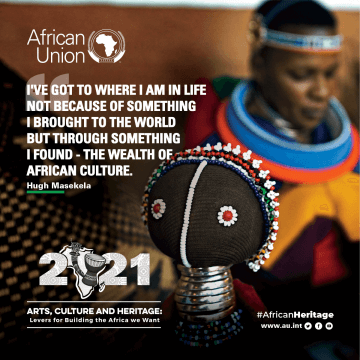Pointe Noire, Republic of Congo. 03-06 December 2019: Labour migration is continuously becoming a key priority area of concern amongst African countries. Socio-economic status, poverty, political, security, environmental as well as global structural causes all prompt migration within and from Africa, affecting the national and regional labour markets. As demand for cross-border mobility continues to increase, effective governance of migration remains a critical challenge for African states to overcome. Paucity of migration data and subjective analysis contributes to the misperception of migration which can have negative consequences at the national, regional and global arena. The lack of a strong evidence base also leads to poorly designed and ineffective labour migration policies and programmatic interventions. The revised African Union (AU) Migration Policy Framework for Africa (MPFA), the Joint AU/ILO/IOM/ECA Labour Migration Programme (JLMP), the 2030 Agenda for Sustainable Development and the Global Compact for Safe, Orderly and Regular Migration (GCM) all emphasize the importance of improving data on migration, especially in regions such as Africa where migration data capacities are often limited.
From 3–6 December 2019, African Union Institute for Statistics (STATAFRIC) and the International Organization for Migration (IOM) organized a capacity building workshop for experts on labour migration from National Statistical Offices, Immigration Directorate and Ministries of Labour of the Economic Community of Central African States (ECCAS) involved in the capture of administrative data, border control statistics, population registers. The objective was to strengthen the collection of new data types with critical indicators for labour migration statistics adopting international statistical standards.
Mr. Edwin Righa, representative of IOM, stated that as part of the JLMP programme implementing partners, IOM has adopted a strategy that focuses on intra-African labour migration by supporting the achievements of the first Ten Year Plan of the AU Agenda 2063 and that of the SDGs as committed in relevant frameworks of the AU and Regional Economic Communities (RECs). “Our goal is to achieve an effective intra-African policy on labour migration and mobility, with good governance, development oriented, and focused on integrating Africa. To meet these goals and make them effective, policies that are grounded on strong evidence, based on data collected on migrant workers by sector and employment patterns are critical.”
The African Union Acting Director of Economic Affairs, Mr. Jean-Denis Gabikini stated that the migration phenomenon is a priority for the African Union, expressed through the adoption of the JLMP and the migration statistics project implemented by Statistics Sweden. He noted the need for evidence base which is critical for the achievement of a prosperous Africa. He noted that in the first edition on migration data, 37 countries participated, while in the second edition, 50 Member States have participated. He also informed the meeting that AUC has developed a methodology to capture the data on irregular migration and associated protection risks. The methodology will be piloted in the following countries such as Botswana, Kenya and Tunisia. He expressed hopes for concrete actions from the discussions. He concluded by announcing that the 3rd Edition of Labour Migration Statistics Report in Africa, will be available in 2020, and he called up all the ECCAS Member States to participate in that edition.
In her opening remarks, the representative of the Director General of National Institute of Statistics of Congo, Madame Kibangou Hombessa Eudoxie Claudine, Statistics Departmental Director, stated that a framework at the continental level is imperative for quality migration data management. She added that the government of Congo have put in place a framework for improved migration data collection and management, including incorporation of a module on labour migration in the census. She underlined the need for experience sharing among migration data experts in Africa.
The meeting was organized by the AU-ILO-IOM-ECA Joint Labour Migration Governance Programme for Regional Development and Integration in Africa, also known as the JLMP.
JLMP was adopted in January 2015 by Heads of States in Africa to contribute to improved labour migration governance to achieve safe, orderly and regular migration in Africa.
For More information, please contact:
Mrs. Leila Ben Ali, Head of Statistics Division, Department of Economic Affairs, AUC. Tel: +251911864903, Email: leilabenali@yahoo.fr
Media Queries contact:
Esther Azaa Tankou, Head of Information, Directorate of Information and Communication, African Union Commission Tel: +251 911361185, E-mail: yamboue@africa-union.org / esthertankou@yahoo.com









